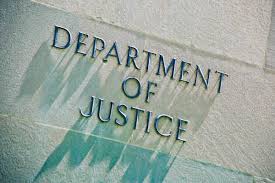DOJ & OFAC Sanctions Predictions for 2023

Trade compliance is the new hot field. Companies are catching up with trade compliance in response to the global sanctions regimes put in place to cripple Russia. The United States, its allies and partners have implemented an unprecedented and complex set of sanctions and export controls. Global businesses were tested. Trade compliance became the center of attention and risks.
In recognition of this reality, the Justice Department has characterized sanctions enforcement as “the new FCPA.” DOJ and OFAC have promised aggressive enforcement of the Russia sanctions program. Like everything in the government, such an initiative takes time to deliver results.
For the year, DOJ brought a total of 40 criminal cases against individuals, 26 of which related to either the Russia sanctions program or the earlier Crimea-related sanctions from 2014. In 2023, this number is sure to increase. DOJ has prioritized enforcement of the Russia sanctions program and we can expect a healthy increase in the 26 number.
DOJ did not bring any significant enforcement actions against any companies, comparable to the SAP case in 2021. In 2023, DOJ will likely bring one or more cases against corporations for violation of the Russia sanctions. Corporate cases take time but DOJ has made those a high priority.
In 2022, OFAC brought a total of 16 enforcement actions for a total of $46 million in penalties. While the number may appear low, OFAC should be proud that it accomplished this result in the same year that it designed and implemented the comprehensive Russia sanctions program. OFAC is likely to increase the number of enforcement actions above 16 because of the resumption of “normal” enforcement activity.

DOJ’s focus on sanctions is likely to incorporate aggressive seizure of assets, money laundering and fraud charges. Once DOJ targets a class of cases, you can expect them to use all of the available tools in their toolbox. DOJ will continue to focus on oligarchs because they are easy targets. The challenge for DOJ, however, is to take down networks of sanctions evaders. These investigations are often complex and resource-intensive.
DOJ’s promise to make sanctions “the new FCPA” cannot occur overnight. DOJ has publicized its corporate enforcement program and the National Security Division’s voluntary disclosure program. DOJ expects that companies that voluntarily disclose to OFAC should also disclose to the DOJ. The dividing line centers on whether there is any evidence that a corporate actor engaged in a “willful” violation, meaning that he/she knew the conduct was illegal but not the precise nature of the violation.
OFAC is likely to increase its focus on the cryptocurrency market. In 2022, OFAC brough two significant cases against Bittrex and Kraken. There is no question that the crypto industry is ignoring the significant AML and sanctions risks. Crypto is under the microscope and OFAC has identified crypto as an easy enforcement target. We should expect more significant cases against crypto exchanges.

In addition, OFAC is likely to increase its focus on supply chains and screening technologies and controls. OFAC recognizes that enforcing the Russia sanctions program requires careful inspection of an organization’s supply chain. Since 2019, OFAC has reminded companies of the need to focus on this risk area.
Every year, OFAC brings enforcement actions against companies for screening errors and weak controls. In 2022, OFAC targeted several cases where companies used IP address location information when onboarding counterparties but failed to apply the technology to individual transactions. This gap was inexplicable and OFAC will continue to focus on these technology gaps.














